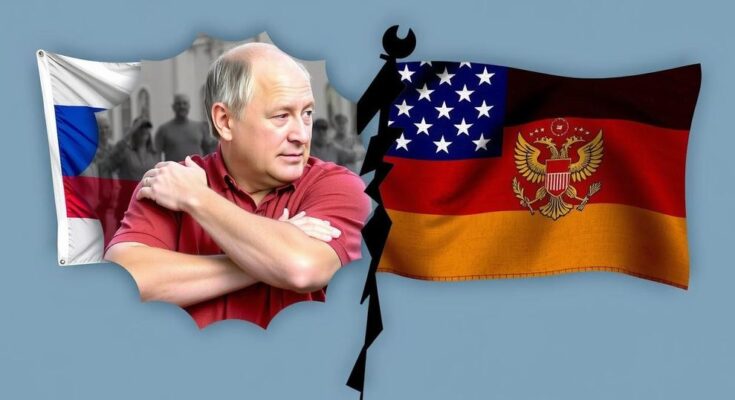Germany’s upcoming election on February 23, 2025, follows the collapse of Chancellor Olaf Scholz’s coalition, with pressure from both Russia and the U.S. mounting. With the far-right AfD gaining support, concerns of foreign meddling have arisen, particularly due to statements from figures like Elon Musk. Analyst views vary on the implications of such interventions in shaping the election outcomes.
Germany is poised for a vigorous election campaign in early 2025, following the collapse of Chancellor Olaf Scholz’s three-party coalition. With the general election scheduled for February 23, both Russia and the United States are exerting significant pressure, which could lead to unprecedented foreign influence. Intelligence agencies have indicated concerns regarding Moscow’s covert attempts to undermine Germany’s support for Ukraine. Simultaneously, U.S. interventions are open and focused on issues such as the economy and migration, inadvertently bolstering the far-right Alternative for Germany (AfD), which has seen a dramatic rise in support.
The involvement of influential figures like Elon Musk has generated alarm among German political leaders. Musk recently expressed his support for the AfD via his X platform, resulting in Schold’s insistence that the election will be determined by voters, not social media owners. Notably, there have been accusations from various politicians equating Musk’s actions with those of Vladimir Putin, highlighting a growing discomfort concerning both Russian and American influence in German politics.
The conservative CDU/CSU party, leading the polls, has criticized Musk’s actions as intrusive, while Musk’s recent opinion piece in the conservative daily Welt prompted the resignation of the title’s opinion editor, signaling a fracture in established opposition against the far-right. The perceived meddling from the U.S. introduces a complex dynamic for many Germans who traditionally view the United States as a democratic model.
Political analysts suggest that while Musk’s influence may be limited due to skepticism among AfD voters towards U.S. messaging, the opportunity exists for both external influences to reshape the political landscape. As Russia continues to perpetrate disinformation and cyberattacks aimed at destabilizing democracy within Germany, the long-term implications of these manipulative tactics on the upcoming election remain uncertain.
In the larger context, Germany has been grappling with concerns over foreign interference in its political process, particularly as it faces significant economic challenges and geopolitical tensions due to its support for Ukraine against Russian aggression. The upcoming election, arising from a government collapse, is intensifying these concerns, with dual pressures from both Russia and the U.S. being unprecedented in their scope. The increase of influence from right-wing parties, alongside allegations of outside meddling, casts a shadow over the integrity of the electoral process and raises questions about national sovereignty in the face of global political dynamics.
The upcoming German election represents a pivotal moment shaped by extraordinary external pressures from both Russia and the United States. With increasing support for the far-right AfD, the intersection of foreign influence and domestic politics creates an uncertain backdrop for Germany’s democratic future. The ongoing struggle between upholding democratic values and countering foreign intervention will likely shape the discourse leading up to the election and beyond.
Original Source: www.barrons.com




